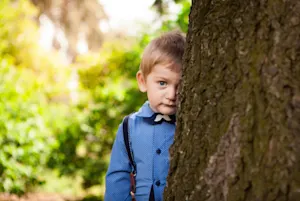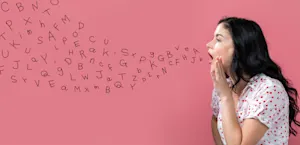What Makes This Word Tick
Gawk is a word that conjures up images of wide-eyed staring, often with a touch of awkwardness. It's more than just looking; it's looking with bewilderment or curiosity. Gawk has an informal, slightly judgmental air to it as if the one doing the gawking is just a bit out of step with the surroundings.
If Gawk Were a Person…
Picture a teenager in the 1950s seeing a television for the first time, mouth agape, unable to tear their eyes away. That's gawk as a person – someone marveling at the marvels of the world with unabashed wonder and just enough clumsiness to accidentally knock over something expensive in the process.
How This Word Has Changed Over Time
Originally, gawk described someone who was awkward or ungainly – think of someone stumbling through a social situation. Over the years, it has come to often mean simply staring foolishly or in surprise. Language loves to evolve, capturing changes in behavior and technology, and gawk is no exception.
Old Sayings and Proverbs That Use Gawk
Proverbs may not often use "gawk," but old expressions like "gawking like a fish out of water" capture the essence of its meaning — an outsider caught in the headlights of experience.
Surprising Facts About Gawk
The word "gawk" can trace some roots to Middle English, sprouting from "gaw" – a term for someone with clumsy or foolish behavior. It's a great example of how descriptive a single-syllable word can be!
Out and About With This Word
You might find yourself gawking at a grandchild's school play, a flashy new smartphone, or a vibrant sunset on an evening walk. It's a universal human reaction to unexpected beauty or curiosity.
Pop Culture Moments Where Gawk Was Used
Gawking is a mainstay in comedy, from Lucille Ball's over-the-top expressions in "I Love Lucy" to animated cartoons where characters' eyes pop out of their heads in astonishment. It’s an essential ingredient for laughs!
The Word in Literature
You'll often find gawk in coming-of-age stories or tales involving fish-out-of-water characters. Someone gawking tends to be the outsider or newcomer, bringing a fresh perspective — intentional or comedic — to the scene.
Moments in History with Gawk
Imagine visitors at the 1964 New York World's Fair gawking at the new futuristic exhibits. From dinosaurs being reconstructed to space explorations beginning, history is littered with moments that left our mouths hanging open in awe.
This Word Around the World
In many languages, the concept of gawking is similar. In French, you'd use "bayer" or "être bouche bée," while in German, "glotzen" provides a similar visual of wide-eyed staring, capturing universal human wonder.
Where Does It Come From?
The roots of gawk stretch back to the 18th century, likely deriving from the combination of "gaw" (a simpleton) and "awkward." Its history is a testament to the timeless human folly of looking a bit silly while trying to understand something new.
How People Misuse This Word
People sometimes use gawk when they mean "glance" or "look," but gawk carries connotations of prolonged, often impolite staring. It isn't just a quick peek; it's an extended, sometimes embarrassing gaze.
Words It’s Often Confused With
Gape: Though similar in meaning, gape implies wide-open mouths whereas gawk involves wide-open eyes.
Glare: Glare involves staring, but with a hint of intensity or anger.
Stare: A bit more neutral; stare doesn't carry the awkwardness that gawk does.
Additional Synonyms and Antonyms
Synonyms include "ogle," "stare," and "glare." Antonyms might be "ignore," "glance," or "peek."
Want to Try It Out in a Sentence?
"Despite the wonders of her surroundings, she couldn't help but gawk at the towering skyscrapers, each one seeming to pierce the sky."
















